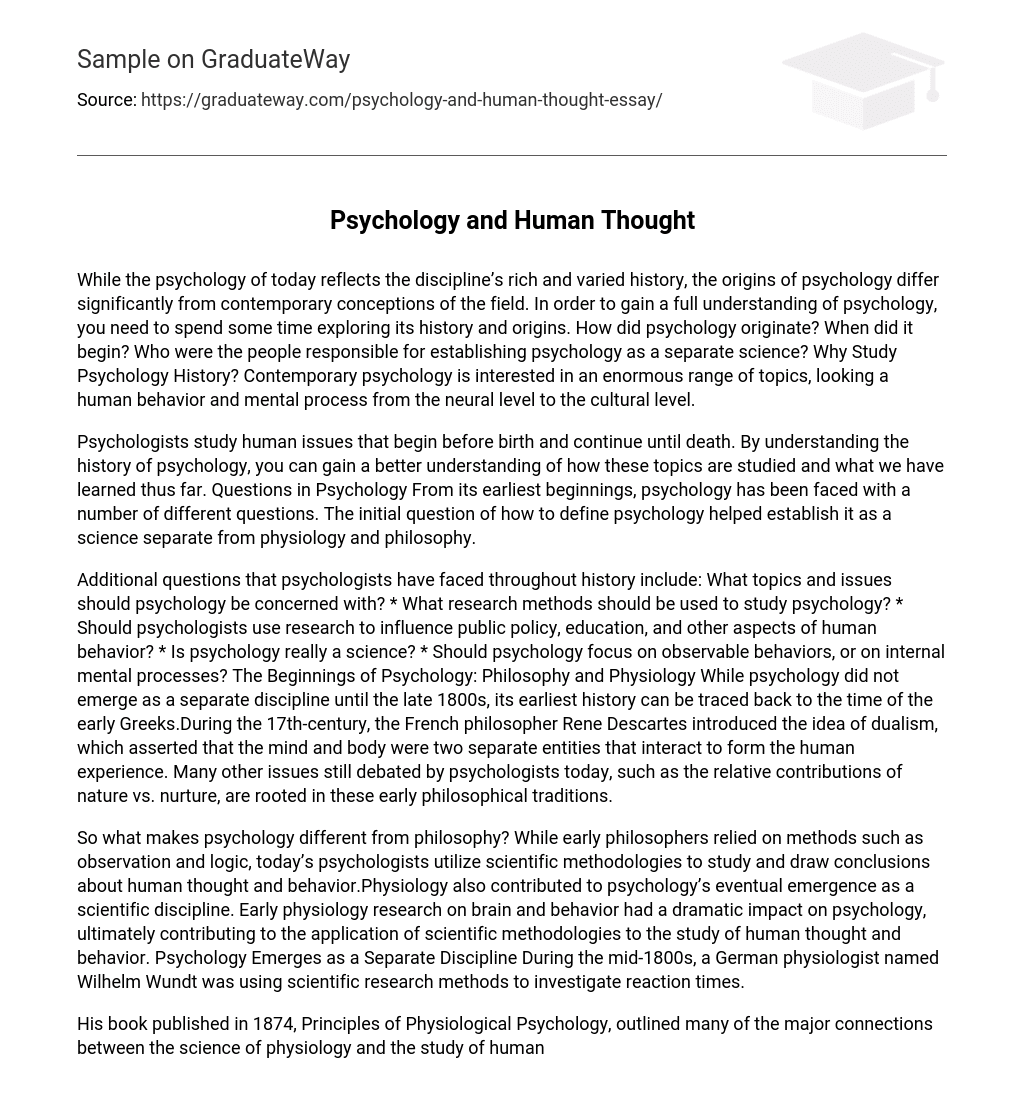Today’s psychology is built upon a rich and diverse history, but its origins differ greatly from present-day understandings. To fully comprehend psychology, one must delve into its history. Where and when did psychology begin? Who were the pioneers who established it as a distinct science? Understanding the history of psychology is crucial because modern psychology explores a vast array of topics, investigating human behavior and mental processes at various levels, from neural to cultural.
Psychologists explore a wide range of human issues throughout the entire lifespan. Gaining insight into the past of psychology aids in comprehending its research methods and accumulated knowledge. Since its inception, psychology has confronted numerous inquiries, including the crucial task of distinguishing itself as a distinct scientific discipline apart from physiology and philosophy.
Psychologists have long grappled with various inquiries in the field of psychology, including its focus, research methods, the impact of research on public policy and education, its status as a science, and whether it should prioritize observable behaviors or internal mental processes.
The roots of psychology can be traced back to ancient Greece but it only became a distinct discipline in the late 1800s. During the 17th century, French philosopher Rene Descartes introduced dualism which suggests that the mind and body are separate entities that interact to shape human experiences. Many ongoing debates among psychologists stem from these early philosophical traditions, such as the nature vs. nurture debate.
Psychology is different from philosophy because it uses scientific methods to study human thought and behavior, unlike early philosophers who relied on observation and logic. The integration of physiology into psychology has had a significant impact on its development as a scientific field. Research exploring the relationship between the brain and behavior has greatly influenced psychology, leading to the adoption of scientific approaches to examine human cognition and actions. In the mid-1800s, Wilhelm Wundt, a German physiologist, played a vital role in establishing psychology as an independent discipline by employing scientific research methods to analyze reaction times.
Wundt’s Principles of Physiological Psychology, published in 1874, examined the correlation between physiology and the study of human thought and behavior. In 1879, he founded the University of Leipzig’s first psychology laboratory, which marked psychology as its own distinct scientific discipline. Wundt focused on exploring human consciousness and utilized experimental methods to analyze internal mental processes.
Despite the fact that his use of introspection is now considered unreliable and unscientific, Wilhelm Wundt’s beginnings in psychology were instrumental in paving the way for future experimental approaches. Roughly 17,000 students attended Wundt’s psychology lectures, and many others went on to pursue degrees in psychology and conduct research in his laboratory. Although his influence waned over time, Wundt’s impact on the field of psychology remains undeniable. Edward B. Titchener’s introduction of structuralism marked the emergence of the first school of thought in psychology.
One of Wundt’s well-known students, Titchener, later established the initial prominent school of thought in psychology. The structuralists believed that human consciousness could be dissected into smaller components. Through introspection, trained individuals would try to analyze their responses and reactions to the fundamental sensations and perceptions. Although structuralism emphasized scientific research, its approaches were unreliable, confining, and subjective.
Titchener’s death in 1927 marked the end of structuralism, but during the mid- to late-1800s, American psychology prospered with William James’ Functionalism. James emerged as a prominent figure in American psychology and his acclaimed textbook, The Principles of Psychology, established him as the founding father of American psychology. This influential book soon became the standard text in the field and ultimately paved the way for functionalism’s development.
The main focus of functionalism was to understand how behavior functions in aiding individuals to navigate their environment. Functionalists employed techniques like direct observation. Although both these initial schools of thought prioritized human consciousness, their understanding of it differed significantly. Structuralists aimed to deconstruct mental processes into their smallest components, while functionalists held the view that consciousness was a more fluid and evolving phenomenon.
Although functionalism is no longer considered a distinct school of thought, it has continued to have a profound impact on subsequent psychologists and theories concerning human thought and behavior.





